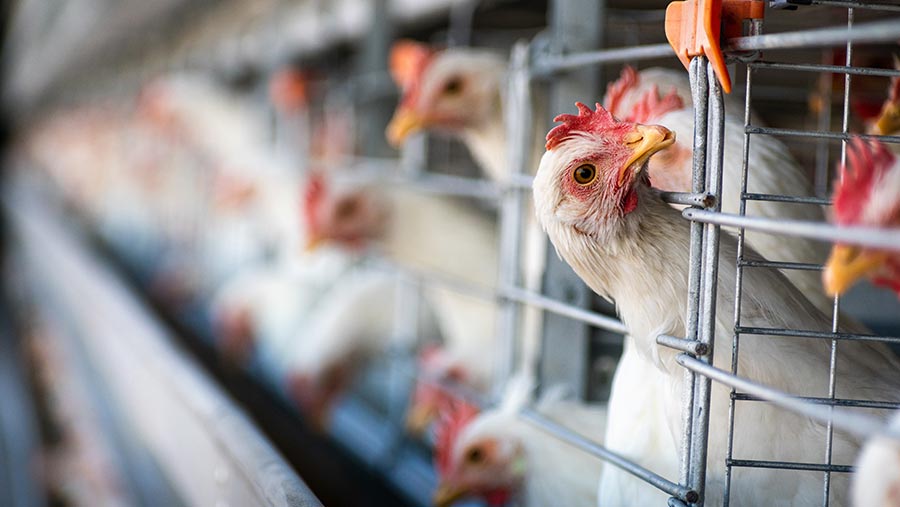Last ditch attempt to block battery-cage egg imports
 © Vaibhav Parihar/Adobe Stock
© Vaibhav Parihar/Adobe Stock With the government expected to rubber-stamp its next big trade deal on 16 July, the British Egg Industry Council, Compassion in World Farming and the RSPCA are demanding a rethink on its decision to exclude eggs as a sensitive product.
Under the terms of the recently agreed Comprehensive and Progressive Agreement for Trans-Pacific Partnership (CPTPP) – which will open up trade with 11 countries across the globe – import tariffs on eggs and egg products will be phased out over a 10-year period.
See also: What the CPTPP free-trade bloc could mean for UK agriculture
But no consideration is being given to the type of systems used, meaning eggs may be imported from countries such as Mexico that use conventional battery cage systems, illegal in the UK since 2012.
Such imports would undercut British egg producers, who operate to world-leading standards of animal welfare under the British Lion Code of Practice.
‘Unbelievable’
BEIC chief executive Mark Williams said: “It is almost unbelievable that the government would let consumers down like this.
“To rubber-stamp a deal which effectively sanctions the importation of eggs from conventional [battery] caged systems is not only counterintuitive, but it also completely undermines the countrywide standards that are adhered to by the UK egg industry.
“It is incumbent on the government to review the position of eggs and egg products to ensure they are granted sensitive status before the CPTPP deal is signed on 16 July.”
Nick Palmer, head of Compassion in World Farming UK, added that, without adequate tariffs to allow only eggs produced to UK standards to be imported, the doors would be wide open for powdered and liquid eggs from countries with lower animal welfare standards.
While UK retailers say they are committed to sourcing only Lion shell eggs for retail sale, it is the 20% of eggs used for egg products that are most at risk.
‘No change’
But the Department for Business and Trade insists nothing is changing with regards to UK standards.
“The UK has not lowered our food, animal welfare or environmental standards in order to accede to CPTPP, and there is absolutely nothing in the agreement which would require us to lower these standards,” said a spokesman.
The department also explains that all agri-food products must comply with UK import requirements in order to be placed on the UK market, whether they are subject to tariffs or not.
This may include some products produced to different animal welfare or environmental standards, which has always been the case and includes products from the EU and other longstanding trading partners.
All egg imports will continue to comply with existing UK import standards and labelling requirements.
All shell eggs sold in retail and at wholesale in the UK must be marked with their method of production or with “non-UK Standard” or “non-EC standard”.
